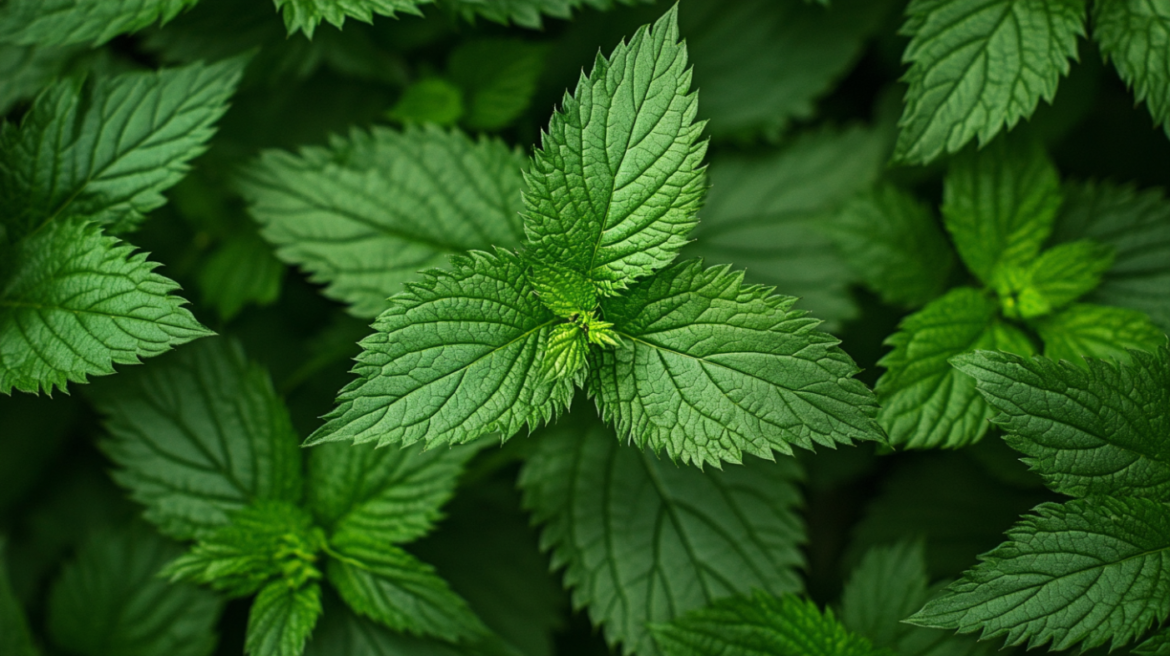What is Nettle?
Nettle (Urtica dioica) is a perennial herbaceous plant found worldwide. It is well known for its stinging effect upon skin contact but is equally valued for its numerous health benefits.
Origin and Distribution
Nettle has been used medicinally since ancient times, with Roman and Greek physicians praising its therapeutic properties. Originally from Central Europe, it thrives in Asia, North America, and Northern Europe due to its adaptability. The plant prefers nutrient-rich, nitrogen-dense soils with adequate moisture and is commonly found at forest edges, near marshes, rivers, and stagnant waters.
Harvesting and Drying Nettle
For medicinal use, nettle is harvested between March and May. After collection, the leaves are dried at a temperature that should not exceed 40°C to retain their beneficial properties.
Nutritional Composition of Nettle
Nettle is a powerhouse of essential vitamins and minerals, including:
- Vitamins: A, B, C, and K
- Minerals: Iron, calcium, magnesium, and potassium
- Other Beneficial Compounds: Carotene, flavonoids, antioxidants, and anti-inflammatory substances
How to Make Nettle Tea at Home
While nettle tea can be purchased from health stores or online, homemade nettle tea is fresher and tastier.
Things to Consider Before Harvesting
If you choose to harvest nettles from nature, avoid polluted areas such as roadsides or industrial zones. Alternatively, nettles can be cultivated in a garden or pots, provided the soil is nutrient-rich and well-watered.
Simple Nettle Tea Recipe
- Boil 200 ml of water.
- Add 3-4 teaspoons of fresh or dried nettle leaves (or a store-bought tea bag).
- Let it steep for 10-15 minutes.
- Strain the leaves and sweeten with honey, cinnamon, or stevia if desired.
- Start with one cup to monitor your body’s reaction.
Health Benefits of Nettle Tea
1. A Natural Diuretic
Nettle tea helps eliminate excess water and salt from the body, which may support lower blood pressure. Additionally, it promotes kidney health, cleanses the digestive tract, and can aid in weight loss.
2. Improves Circulation and Heart Health
Nettle helps lower blood pressure by stimulating nitric oxide production, which dilates blood vessels. It also contains compounds that act on calcium channels, relaxing the heart and supporting cardiovascular health.
3. Supports Urinary Tract Health
Due to its anti-inflammatory properties, nettle tea may relieve prostate issues and help prevent calcium oxalate crystal buildup—the main cause of kidney stones. However, regular consumption should be discussed with a healthcare professional.
4. Strengthens the Immune System
Rich in vitamins and antioxidants, nettle enhances immunity and protects the body from infections. Drinking two cups of nettle tea daily may contribute to a stronger immune response.
5. Reduces Pain and Inflammation
Nettle’s anti-inflammatory effects help alleviate muscle and joint pain, as well as migraines. It is commonly recommended for arthritis and other inflammatory conditions.
6. Supports Digestive Health
Nettle tea does not cause constipation and can benefit people with irritable bowel syndrome (IBS). Its antioxidants and anti-inflammatory compounds promote a healthy digestive system.
7. Benefits for Skin Health
Regular consumption of nettle tea supports skin regeneration, accelerates wound healing, and has antiseptic properties. Applied topically in creams or lotions, nettle extract can speed up recovery from wounds and improve skin conditions.
Side Effects and Contraindications of Nettle Tea
1. Medication Interactions
- Vitamin K Content: Nettle is high in vitamin K, which may interfere with blood thinners (anticoagulants).
- Blood Sugar Management: Nettle tea can lower blood sugar levels, which may pose a risk for individuals taking diabetes medications.
- Diuretics: Those on diuretic treatment should limit nettle tea intake, as it can increase fluid loss.
2. Precautions for Pregnant Women
Pregnant women should avoid nettle tea without medical advice, as it may stimulate uterine contractions, increasing the risk of miscarriage or premature birth.
Conclusion
Nettle tea is a natural remedy packed with health benefits, from boosting immunity to supporting heart and kidney health. However, individuals on medication or pregnant women should consult a healthcare professional before consuming it regularly.
u pede mollis pretium. Integer cidunt. Cras dapibus. Vivamus elementum semper nisi. Aenean vulputate eleifend tellus.
